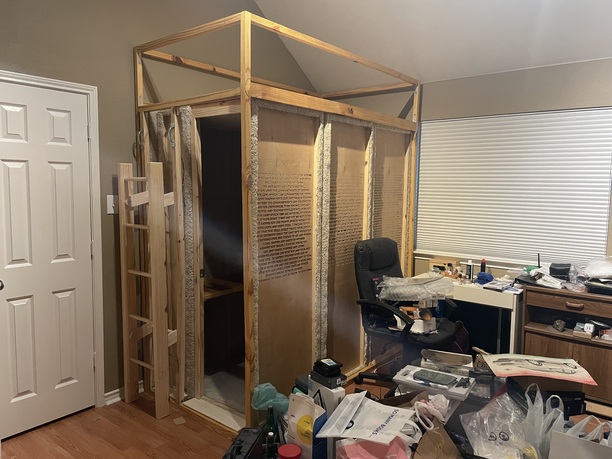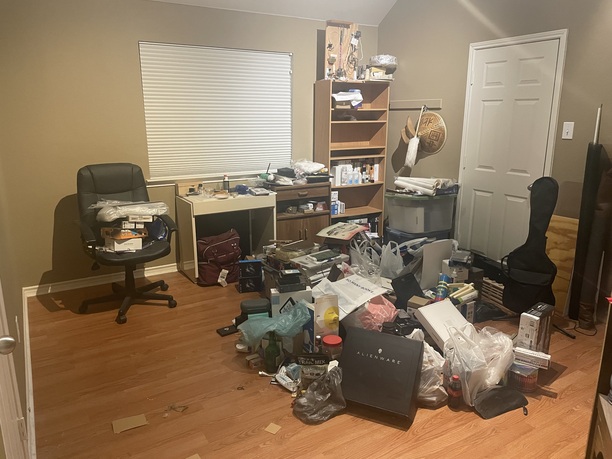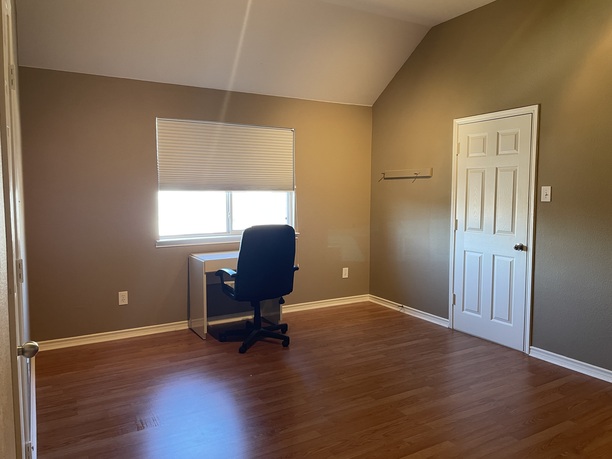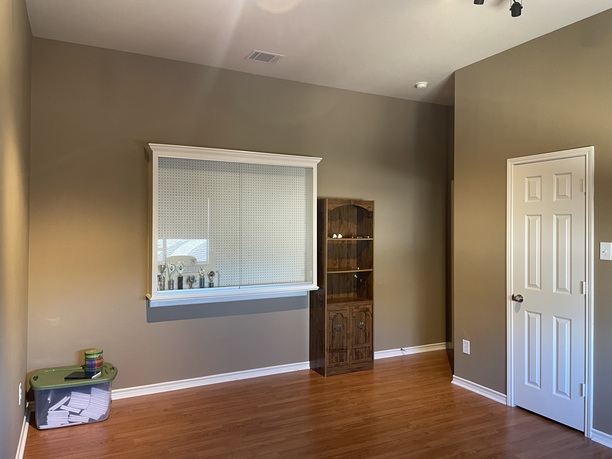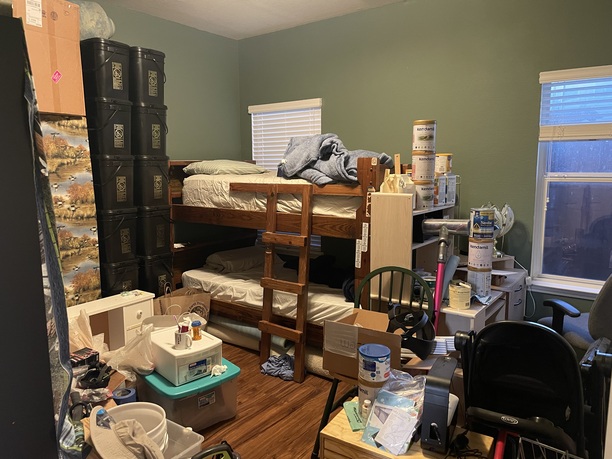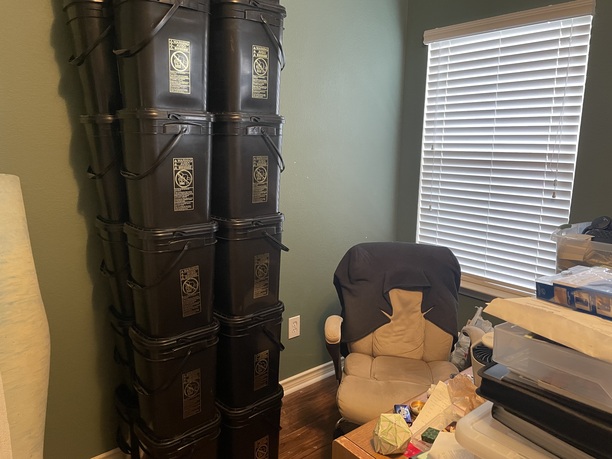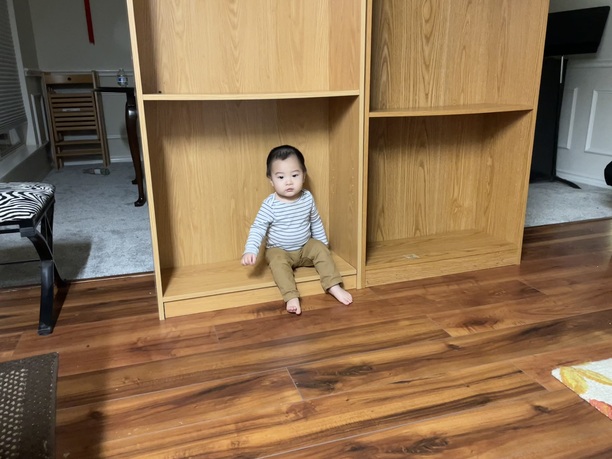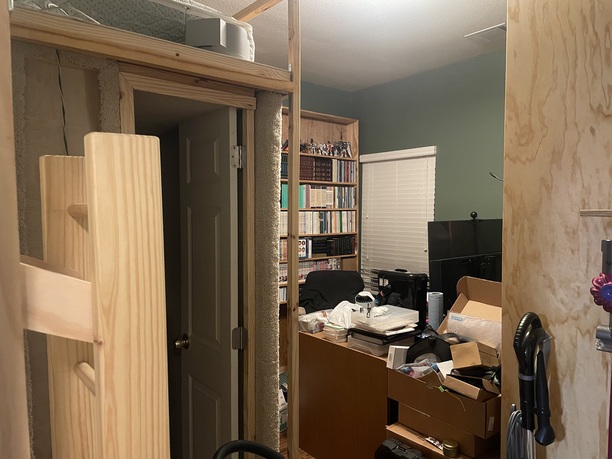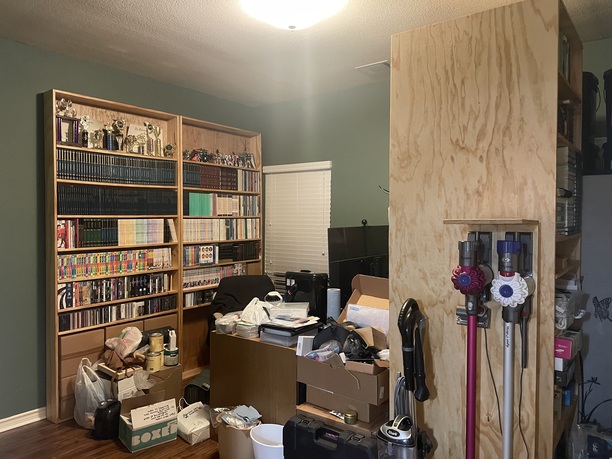Free time has been scarce, recently. I've been meaning to make a post, but have been delayed due to numerous family obligations. But, I've had lots of thoughts and observations recently, that I would like to share.
I've spent the past five months migrating my study from upstairs to downstairs. This has meant clearing the room downstairs, building new custom bookshelves to hold everything, organizing all my things and moving everything downstairs. I started on this at the beginning of September, right after my kid's first birthday. My original goal was to get it done by the end of the year, but my parents going to Austin for two months, us going to Austin for Thanksgiving, and various other unplanned activities caused me to delay finishing moving everything until the beginning of February. But, I kept at it, even though progress was not as quick as I wanted at times, and now, everything is moved downstairs, and mostly organized, though there's still a little bit left.
Going through everything was like going back in time. There were layers of belongings belonging to distinct periods of my life, periods that I am now quite a distance away from to no longer be in. These felt like small time capsules. Examining these artifacts allowed me to venture back into those times and remember life at different points in time. Even though change has been mostly gradual, looking back, things are now very different than before. Some of the things I moved downstairs were from the first few days when we moved into this house in the June of 2013. I felt like this was the end of an era.
Outside of the house, things also seem to be changing. For ten years from 2012 until 2022, software developers rose to the top of society. Jobs were plentiful and lucrative and everyone wanted to be one. COVID only exacerbated this trend. For two years, in 2020 and 2021, it seemed that companies were desperate to hire more software developers. Things got crazy. Then, things got retarded. People were going through their days while doing hardly any real work. People were protesting their own companies while on company time. It was a sign of the times.
Then, Elon Musk bought Twitter and laid off 80% of the staff, and kept the lights on. Most tech companies soon followed suit. We are now in 2025, and it seems that there is a looming recession that nobody has started to talk about yet. The job market has reversed, and companies have either stopped hiring, or have become much more selective in the limited hiring that they do do. This may be a glimpse of the future, and not just a blip on the map. I am convinced that we are currently living through significant historical events as they are unfolding. History books just haven't caught up yet.
As an aside, the golden age of open source software may be truly over now. Things have changed a lot over the past 20 years. 20 years ago marked the height of the Microsoft Windows era, as countless Linux distributions spawned and innumerable open source applications and projects were started. Up until that point, you either paid for the software you wanted to use, or you pirated them, and accepted the risk of getting infected by viruses. We heralded the hope of a new and better world as we discovered there were countless software developers who were willing to dedicate their time to creating software that could be given away for free, source code and all. The software that were created were not necessarily inferior to the ones you had to pay for. Sure, there were open questions about how software developers would be fairly compensated if the majority of users were freeloaders. As the years went by, some open source projects died due to developer burnout or entitled user demands (ffmpeg), other open source projects got bought out and either discontinued or diluted to the point of being only a shell of its former self (Redhat, CentOS, Ubuntu, MySQL, Java), paid software got bloated with DRM and spyware (games, Photoshop), and the migration to the cloud meant that many applications were geared for data center resources that were inaccessible to normal everyday folk. It is disheartening to see that quality software is now shrinking with the passing years, and dependable customer centric choices are now so limited.
In the realm of physical things, as more tech is being integrated into everything we use, things have become only more prone to breaking, more expensive, less repairable, and more intrusive. With the amount of tracking in cars, the increase in price combined with the decrease in build quality, I find myself drawn more towards older cars than new ones. As with phones, appliances, and everything else, the improvement in technology now comes with an even bigger step backwards in what ownership now means that I don't even consider myself to be the owner of the things I have to pay money to use. When I look at my old stuff, I am hit with the realization that consumers in the modern world are not respected at all, with companies trying to squeeze everything they can out, whether it be the current purchase price, the marketable user data and behaviors that can be tracked, the future repair or replacement cost, or even the ability for use past a certain date subject to unrestricted changes to the terms of service. Expectations have slowly morphed into something we would never have accepted 20 years ago.
Globally, it seems that economies everywhere are slowing down. China is in free fall and is desperately clutching at fleeing foreign investment and domestic capital. Europe is steadily and slowly sliding into uncompetitiveness. Japan is continuing their futile fight against economic stagnation by devaluing their currency to stimulate tourism. The United States elected Trump, who has promised great things, but has thus far been making a mess of things for friends and foes alike. Democrats are preoccupied with arguing about DEI while Republicans are drinking Chinese kool-aid. Uncertainty is how I would characterize the world of today.
Granted, it's not all doom and gloom. I think the United States is faring better than anywhere else, but needs a steady hand on casting off the albatross of Chinese dependence that it thinks it needs around its neck. Steady progress has been made in the past eight years, but we're not even close to being at the end. I think this is also the end of an era.
